
Keep your brassicas safe from cabbage white butterlies
2 Minute Read
Dr Ian Bedford tells us everything we need to know about the 'bug of the month' for September cabbage white butterflies.Protecting your crops from cabbage white butterflies
Are there more than one species of cabbage white butterflies?
During the spring and summer, warm, sunny days are when butterflies are most likely to be found searching for nectar. You will often see two species of cabbage whites in our gardens - the large and small cabbage white butterflies. Also affectionately known as summer snowflakes.
For many, these delicate flying insects will be a joy to watch, often trailing through the sky in little groups that resemble snaking kite tails. But for others, the sight of cabbage white butterflies will probably cause concern, as it heralds the time they’ll be laying eggs on brassica plants. Eggs that soon hatch into their leaf-eating larvae.
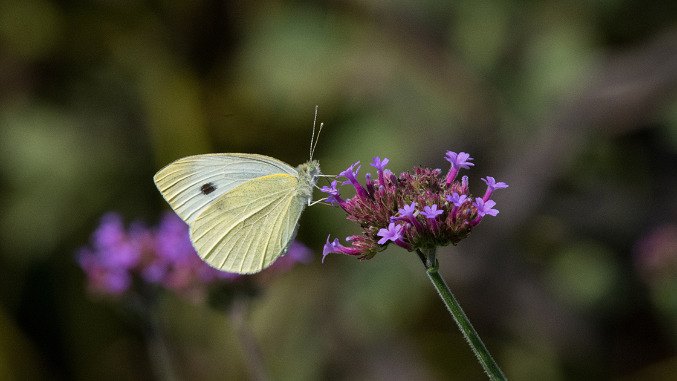
Why are cabbage white butterflies bad news for brassicas?
However, it’s the yellowy green and black speckled larvae of the large white that’ll be most damaging to brassica plants since, after they hatch from the clusters of 50 or so yellow eggs, they feed gregariously, reportedly consuming around 27,000 times their final body weight of leaf material before they pupate.
Although the small white’s velvety-green larvae are solitary after hatching from individually laid pale green eggs, they often burrow through the leaves and into the heart of cabbages, causing problems for commercial crops. So, what should brassica growers do to control the damage that the larvae causes?
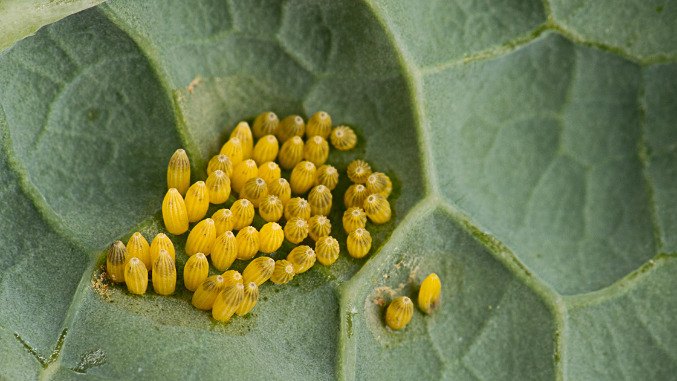
What can I do to control cabbage white butterflies?
Firstly, killing the adults should always be avoided since other white-coloured butterfly species could be mistaken for cabbage whites. However, if brassica plants are unprotected from the larvae, their feeding could invariably cause significant levels of leaf damage and potentially destroy crops.
Despite the potential for using chemical pesticides on the larvae, it wouldn’t be an environmentally friendly option, and should be a last resort. The reason being that these products will most likely contain a broad-spectrum toxin such as Pyrethrin (organic Pyrethrum), a Pyrethroid (e.g. Deltamethrin, Lambda-Cyhalothrin), or a Neonicotinoid (Acetamiprid), which could all harm non-target insects and beneficial wildlife, a fact that is not always on the product’s label.
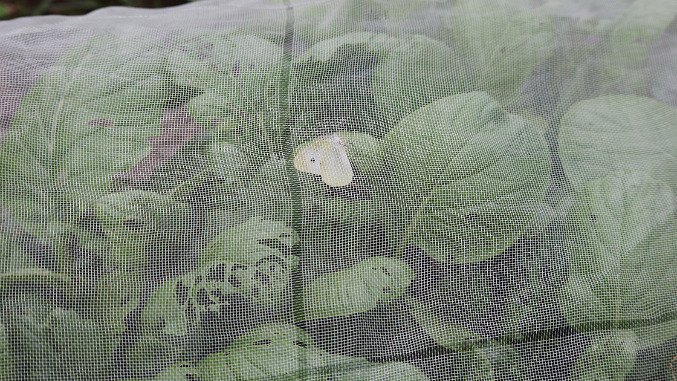
Environmentally-friendly ways of controlling cabbage white butterflies
However, a simple and environmentally safe alternative, would be to securely enclose susceptible plants within a netting large enough for water and light to pass through, but not the adult butterflies.
Always ensure there is at least a gap of two inches from the plants; otherwise the butterflies could push their abdomens through the netting and lay their eggs on to the leaves. Another option would be to regularly check the underside of leaves for butterfly eggs and remove as many as possible by rubbing them off the leaf with a finger.
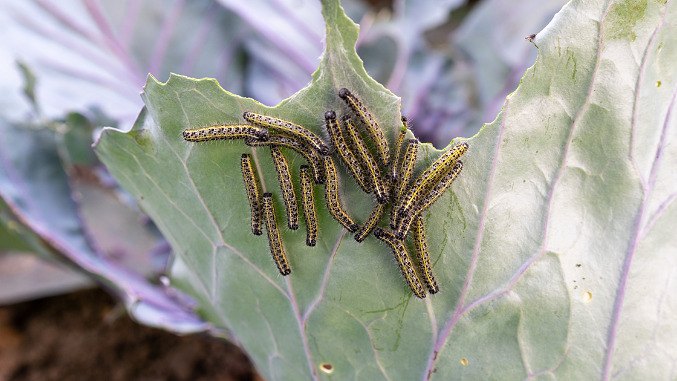
Do I need to control cabbage white butterflies?
Any missed eggs will soon hatch into larvae, which could then be deterred from feeding on the leaves by spraying with a non-toxic, organic deterrent such as Grazers G3, leaving them to be predated on naturally by social and parasitic wasps.
For those who do not need to control cabbage white butterflies and enjoy watching ‘summer snowflakes’ in their gardens each year, grow Nasturtiums for the butterflies to lay their eggs on and for their larvae to eat.
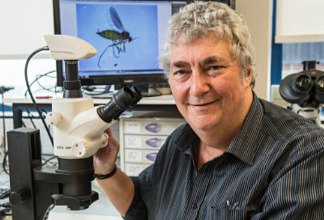
About Dr Ian Bedford
Ian has been fascinated by the bug world for as long as he can remember. From studying butterflies on the South Downs as a youngster, he went on to pursue a career in Research Entomology and ran the Entomology Dept at the John Innes Centre in Norwich up until his recent retirement.Ian now works as an independent entomologist offering advice to companies developing environmentally safer plant protection products.
VISIT WEBSITE
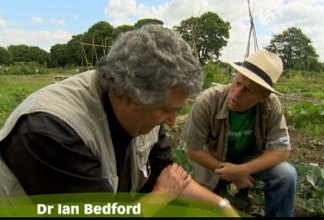
'Bug of The Month'
Welcome to 'Bug of the Month' with Dr Ian Bedford.Every month Ian will shares his knowledge on how to protect your plants and gardens from preventable pest invasions while providing valuable insights into the insects regularly found in our gardens.
find out more
Comments (0)
Why not be the first to send us your thoughts?
Leave A Comment
Most popular articles
1
Plastic plant pots dimensions and uses2
Peat vs Peat Free - Choosing the right Potting Compost3
How to Grow Watercress at home in plant pots4
January Jobs5
Our guide to seed sowing compost